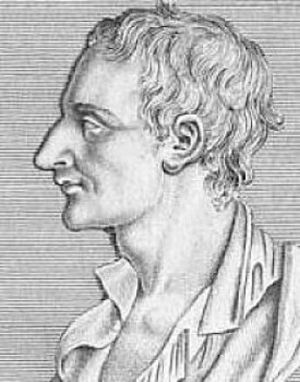Sylvain Maréchal facts for kids
Sylvain Maréchal (born August 15, 1750 – died January 18, 1803) was a French writer, poet, and thinker. He had ideas that were similar to later ideas about a perfect society where everyone shares everything. Some of his ideas about a future "golden age" are sometimes called utopian anarchism, which means he imagined a perfect world without rulers. He also worked as an editor for the newspaper Révolutions de Paris.
Contents
Early Life in Paris
Sylvain Maréchal was born in Paris. His father was a wine merchant. Sylvain studied law and became a lawyer in the city. When he was 20, he published a book of poems called Bergeries. This book was popular enough to help him get a job as an assistant librarian at the Collège Mazarin.
Maréchal admired famous thinkers like Jean-Jacques Rousseau, Voltaire, and Denis Diderot. He also spent time with writers who believed in God but not organized religion (called deists) and writers who did not believe in God (called atheists).
Maréchal's Unique Ideas
Maréchal developed his own ideas about a society where all goods would be shared, especially in farming communities. This is sometimes called agrarian socialism.
In one of his writings, Fragments d'un poème moral sur Dieu, he wanted to replace traditional religious practices with a focus on good behavior and logical thinking. He called this a "cult of Virtue and faith with Reason."
Challenging Authority
Maréchal was critical of both religion and systems where rulers had total power. He wrote a book called Livre échappé du déluge, which was a humorous imitation of the Bible. Because of his strong views and his atheism, he lost his job at the college. After that, he had to earn a living only from his writing.
In 1788, he was sent to prison for four months. This happened because he published a book called Almanach des Honnêtes Gens ("Honest Man's Almanac"). This almanac changed the names of the months and replaced the usual saints' names with famous people like Blaise Pascal. Later versions of his almanac used the French Republican Calendar, which was a new calendar created during the French Revolution. From this time until he died, he published his works without his name on them to avoid more legal trouble.
His Views on Atheism
During Maréchal's time, most people in France were very religious, and atheism was often disapproved of. Living in a country with strong Christian traditions, he often wrote about his thoughts on the church. He was often critical of the rules and beliefs held by Christians of his time.
In an essay from 1799, Sylvain Maréchal wrote that he did not need God, just as God did not need him. He called this attitude "true atheism." He strongly believed that no one should rule his life, and that included the will of any god. For him, believing in God meant accepting a system where some people are ranked above others.
Role in the French Revolution
Maréchal was a strong supporter of the French Revolution. He also spoke up for the poor. He did not get involved in the fights between the different political groups, like the Girondists and Jacobins. Instead, he became concerned about how the revolution was turning out, especially after some major changes in government.
He met François-Noël Babeuf and became involved in Babeuf's plans for a more equal society. Maréchal's ideas influenced what is now known as utopian socialism. He even wrote a famous document called Manifeste des Egaux ("Manifesto of Equals") in 1796, which supported Babeuf's goals.
Later Writings
Some of his later works include a proposal from 1801 called Projet de loi portant défense d'apprendre à lire aux femmes ("Bill Defending the Teaching of Reading Skills to Women"). This work is related to topics like women's studies and egalitarianism, which is the belief in equal rights for all people. He also wrote a Dictionnaire des Athées anciens et modernes ("Dictionary of Ancient and Modern Atheists"). He passed away in Montrouge in 1803.
See also
 In Spanish: Sylvain Maréchal para niños
In Spanish: Sylvain Maréchal para niños
 | Emma Amos |
 | Edward Mitchell Bannister |
 | Larry D. Alexander |
 | Ernie Barnes |


